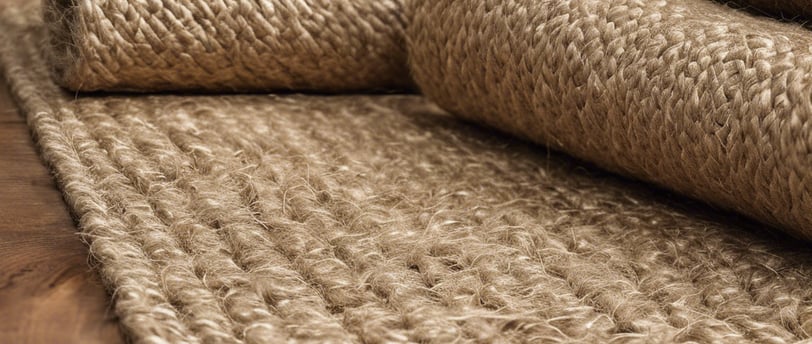Understanding the Different Grades of Jute: What You Need to Know
Not all jute is created equal! 🌿 From premium Grade A for high-end products to functional Grade D for cost-effective uses, understanding jute grades can help you make smarter choices. Discover the versatility of the "golden fiber" and find the perfect fit for your needs.
5/14/20242 min read


Jute, often referred to as the "golden fiber," is a versatile and eco-friendly material widely used in textiles, packaging, and industrial applications. However, not all jute is created equal—its quality is categorized into various grades, each suited for specific uses. Understanding these grades is key to selecting the right type of jute for your needs. Here’s a quick guide to the different grades of jute and what makes them unique.
1. Grade A Jute: The Premium Quality
Grade A jute represents the finest quality available. It is characterized by its smooth texture, long fibers, and natural luster. This grade is highly durable and ideal for high-end products like:
Decorative jute items
Premium packaging solutions
Home furnishings and upholstery
The superior strength and appearance of Grade A jute make it a favorite for industries requiring top-notch materials.
2. Grade B Jute: Durable and Reliable
Grade B jute is slightly coarser but still offers excellent durability and flexibility. This grade is commonly used for:
Standard packaging sacks
Industrial ropes and cords
Mats and carpets
Its strength and cost-effectiveness make it perfect for applications that demand robust yet economical materials.
3. Grade C Jute: Utility and Versatility
Grade C jute is functional and versatile, though it has shorter fibers and a coarser texture compared to higher grades. It’s frequently used in:
Agricultural packaging (e.g., sacks for grains)
Basic ropes and twines
Erosion control mats
This grade balances affordability with utility, making it a go-to choice for bulk applications.
4. Grade D Jute: Basic and Affordable
Grade D jute is the most basic quality, suitable for non-specialized uses. It often finds applications in:
Temporary coverings
Low-cost industrial packaging
Compostable products
Although it lacks the strength and smoothness of higher grades, Grade D jute serves well in situations where aesthetics and durability are not primary concerns.
Why Understanding Jute Grades Matters
Choosing the right grade of jute can significantly impact the performance and longevity of your products. Premium grades like A and B are perfect for industries where quality and appearance are critical, while lower grades are better for large-scale, cost-sensitive uses. At Biz Njp, we offer a wide range of jute products tailored to your specific needs, ensuring you get the right grade for every application.
Conclusion
From high-end decorative items to industrial-strength ropes, the different grades of jute provide endless possibilities. Understanding these distinctions helps businesses make informed choices while supporting sustainability. With over three decades of expertise, Biz Njp is your trusted partner for all things jute, offering high-quality, customizable solutions for every requirement.
#JuteGrades #GoldenFiber #EcoFriendlyMaterials #SustainableBusiness #NaturalFiberProducts #BizNjp
Biz Njp
Sustainability Delivered At Your Doorstep
Connect with us
Join the green movement
info@biznjp.com
+351 920 504 668
© 2024 Biz NJP . All rights reserved.
